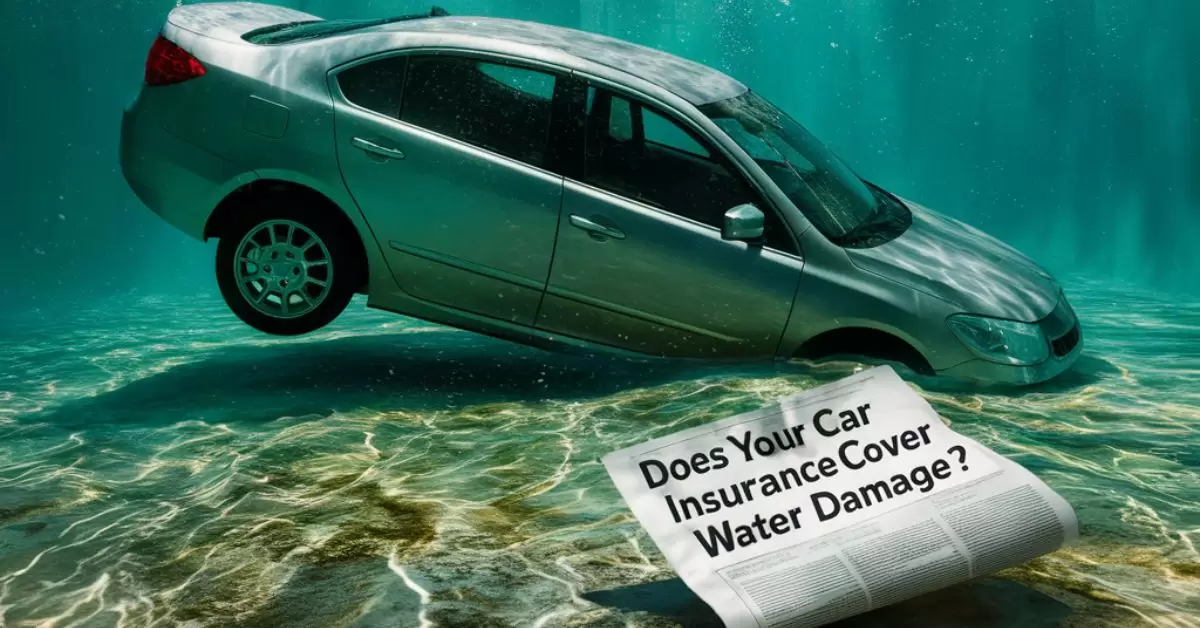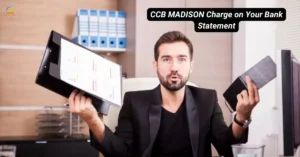When it comes to protecting your vehicle, understanding the ins and outs of car insurance is crucial. One question that often leaves drivers scratching their heads is, Does car insurance cover water damage?
The weather is notoriously unpredictable and this can lead to very expensive repairs and raise valid concerns. This complete guide will take you through all aspects of auto insurance and flooding; you will be able to understand what is behind various events in order to avoid any rough sailing.
Types of Water Damage in Cars
Firstly, we need to understand about water damages on vehicles; there are various types involved in the collision.
- Flood damage: This occurs when your vehicle is submerged in water due to rising water levels.
- Rain and storm-related leaks: Water can seep into your car through faulty seals or small openings during heavy rainfall.
- Accidental spills: These are less common but can happen if a large amount of liquid is spilled inside the vehicle.
- Plumbing or infrastructure issues: Water damage can result from burst pipes or malfunctioning car washes.
Different situations may result in a lot of destruction, such as failure of electrical systems as well as growth of mold. However, it is your insurance policy and the particularity of the case that will determine how far you are covered in case these problems occur.
Will Car Insurance Pay for Water Leaks Caused by a Flood?
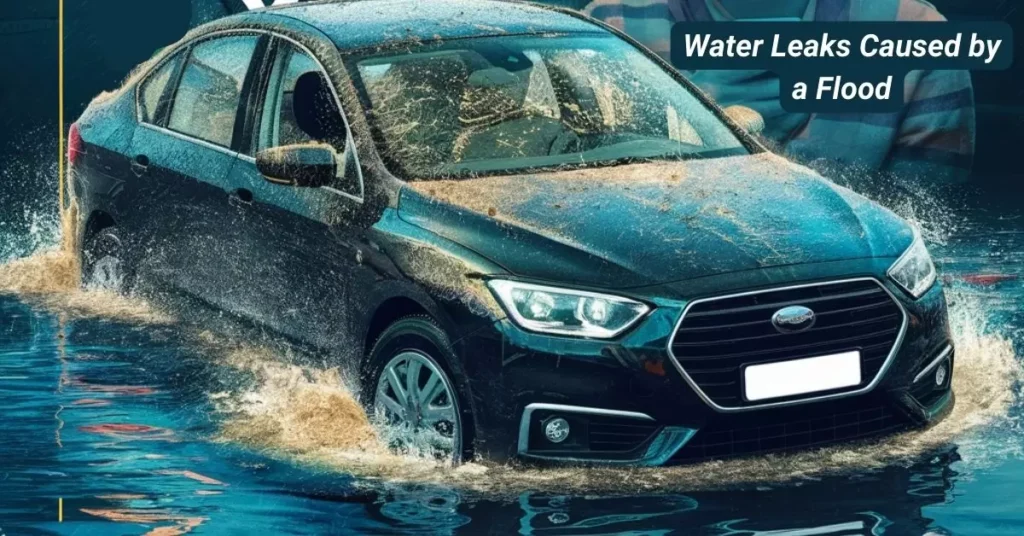
When it comes to flood damage, the answer isn’t always cut and dry. Here’s what you need to know:
Comprehensive Coverage Explained
When we talk about damages from floods, comprehensive coverage has your back. This kind of insurance shields your car against non-collision events like the following:
- Natural disasters
- Theft
- Vandalism
- Falling objects
- Animal-related damage
And yes, flood damage typically falls under this umbrella. However, it’s crucial to note that comprehensive coverage is often optional, meaning you’ll need to specifically add it to your policy.
Flood Damage Scenarios
Let’s look at a few scenarios to better understand how flood coverage works:
- Flash flood: Your car is parked on the street when a sudden downpour causes flooding. If you have comprehensive coverage, you’re likely covered.
- Hurricane-related flooding: In coastal areas prone to hurricanes, comprehensive coverage becomes even more critical. It’ll typically cover damage from storm surges and heavy rains.
- River overflow: If a nearby river overflows its banks and damages your car, comprehensive coverage should have you protected.
Limitations and Exceptions
While comprehensive coverage is extensive, it’s not without limits:
- Deductibles: You’ll usually need to pay a deductible before your insurance kicks in.
- Policy limits: There may be a cap on how much your insurance will pay out.
- Timing: If you try to add comprehensive coverage when a flood is imminent, your claim might be denied.
“It’s always better to be prepared. Don’t wait until the storm clouds gather to review your insurance policy.” – Insurance expert Jane Doe
Will Your Insurance Company Cover Water Leaks from Storms?
Storms can wreak havoc on your vehicle in various ways. Let’s explore how insurance typically handles storm-related water damage:
Different Types of Storm-Related Water Damage
- Leaky seals: Heavy rain can expose weaknesses in your car’s seals, leading to interior water damage.
- Hail damage: While not strictly water damage, hail often accompanies storms and can cause both exterior and interior damage if windows are broken.
- Flying debris: Storm-tossed objects can break windows or create holes, allowing water to enter.
Related Article: Does Your Car Insurance Cover Hitting a House? Get the Facts!
Coverage Variations Based on Policy Type
Your level of protection against storm-related water damage depends on your policy:
| Policy Type | Typical Coverage for Storm Damage |
| Liability Only | No coverage |
| Collision | No coverage |
| Comprehensive | Covers most storm-related damage |
Common Misconceptions About Storm Coverage
Many drivers assume that any water damage from rain is automatically covered. However, there are some important distinctions:
- Gradual damage: If the water damage occurs slowly over time due to poor maintenance, it may not be covered.
- Pre-existing conditions: If your car already had leaks or damage that allowed water in, your claim might be denied.
Does Regular Car Insurance Cover Water Leaks?
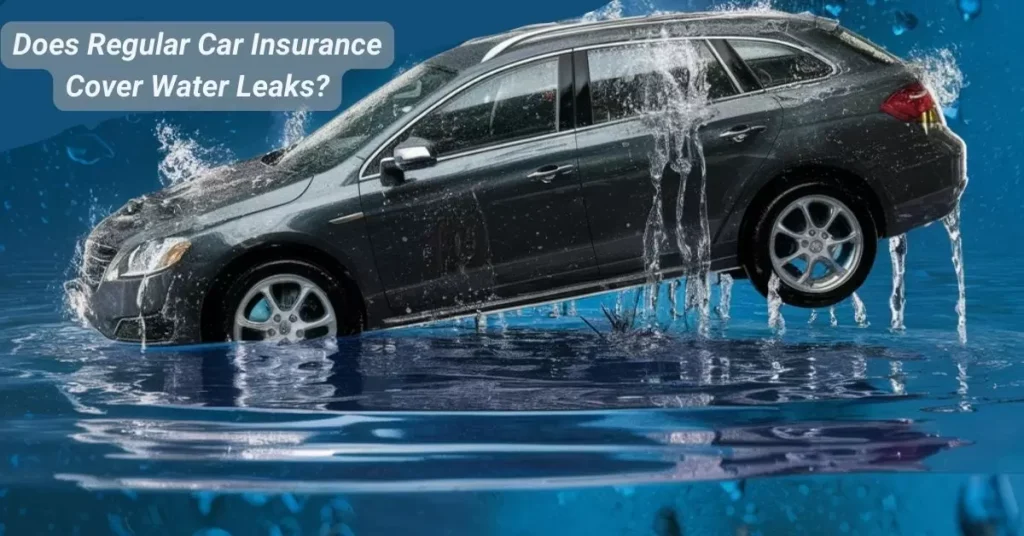
Usually, when we speak about normal auto insurance, we are fundamentally talking about basic responsibility policy. However, here’s how the various types of coverage relate when it comes to water leakages:
Basic Liability vs. Comprehensive Coverage
- Basic liability: This covers damage you cause to others but doesn’t protect your own vehicle from water damage.
- Comprehensive coverage: As mentioned earlier, this is your best bet for protection against water damage.
Gradual Damage vs. Sudden Incidents
Insurance companies make a clear distinction between gradual damage and sudden incidents:
- Sudden incidents: A tree branch breaking your windshield during a storm, allowing rain in, would likely be covered under comprehensive insurance.
- Gradual damage: A slow leak that develops over time due to wear and tear probably won’t be covered.
Maintenance-Related Issues and Insurance
It is crucial to comprehending that no proper repair can be substituted with an insurance cover. The following are cases where your claim may be rejected:
- Leaks caused by rusted body panels
- Water damage due to a cracked windshield you’ve neglected to repair
- Mold growth from leaving windows open during rain
Case Study: The Importance of Regular Maintenance
John from Florida learned this lesson the hard way. He noticed a small leak in his sunroof but put off repairing it. After a particularly heavy rainstorm, he found his car’s interior soaked and the electrical system damaged. His insurance claim was denied because the damage was deemed to be the result of neglect rather than a sudden, unforeseen event.
Factors Affecting Water Damage Coverage
Several factors come into play when determining whether your water damage claim will be approved:
- Type of insurance policy: As we’ve discussed, comprehensive coverage is key.
- Cause of water damage: Was it a sudden, unexpected event or the result of ongoing issues?
- Extent of damage: Minor interior wetness might be treated differently than major electrical system failure.
- Vehicle value and age: Older vehicles might be more likely to be totaled if the repair costs exceed the car’s value.
Steps to Take If Your Car Suffered Water Damage
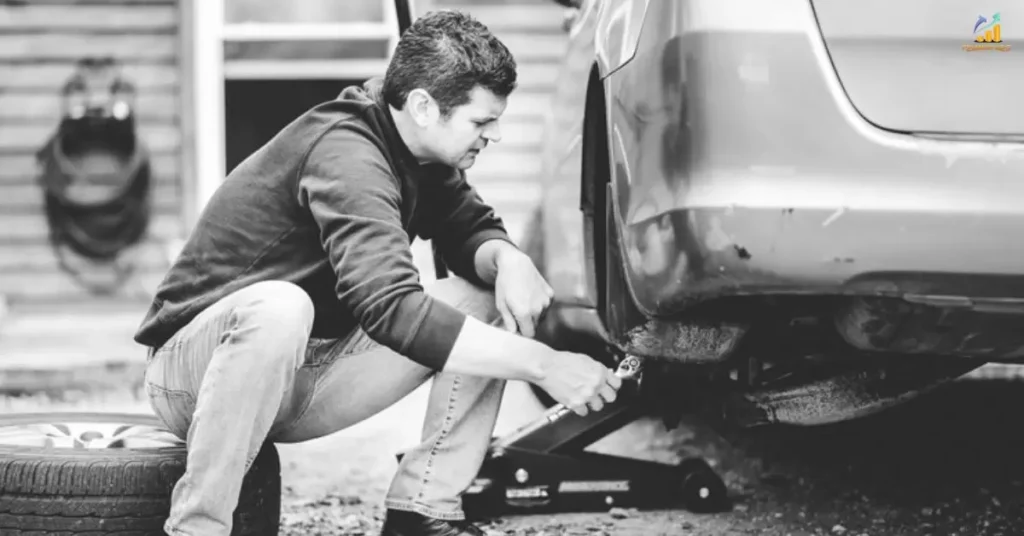
Below are some measures that can be taken to prevent the risk of damage to your car due to water and improve your insurance claim:
- Don’t start the engine if there’s a chance water has entered it.
- Document everything with photos and videos.
- Remove standing water as quickly as possible to prevent further damage.
- Contact your insurance provider immediately.
- Get a professional assessment of the damage.
- Keep all receipts related to the incident and repairs.
Prevention Tips: Protecting Your Car from Water Damage
The worth of an ounce of prevention is a pound of cure. Below are strategies that can help prevent water damage:
- Regular maintenance checks: Have your car inspected regularly for potential leak points.
- Weatherproofing strategies: Apply water-repellent products to your car’s exterior and consider weatherstripping for doors and windows.
- Safe parking practices: During floods or storms, park on higher ground or in covered areas when possible.
Related Article: Does Your Car Insurance Cover Gearbox Failure? Find Out Now!
How to Choose the Right Car Insurance for Water Damage Protection
When it comes to safeguarding oneself from water damages, selecting an appropriate insurance plan can turn the tide. Here’s what to consider:
Evaluating Your Needs and Risks
- Location: Do you live in a flood-prone area?
- Climate: Are heavy rains or storms common in your region?
- Parking situation: Do you typically park in a garage or on the street?
Comparing Different Policies and Providers
Don’t settle for the first quote you receive. Shop around and compare:
- Coverage limits
- Deductibles
- Exclusions
- Customer service ratings
Questions to Ask Your Insurance Agent
- What specific water damage scenarios does this policy cover?
- Are there any water damage-related exclusions I should be aware of?
- How does filing a water damage claim affect my premiums?
- Do you offer any discounts for water damage prevention measures?
Does Car Insurance Cover Leaking Sunroof
A leaking sunroof can be a real headache for car owners. Most basic car insurance doesn’t cover this problem. You’ll need comprehensive coverage to have a chance at getting help.

Even with comprehensive coverage, it’s not guaranteed. Insurance companies often see leaks as a maintenance issue. They may only cover sudden damage, not gradual leaks.
Frequently Asked Questions
What’s the difference between comprehensive and collision coverage?
Your vehicle will be protected from collisions with other cars or objects through collision insurance, whereas comprehensive insurance is meant to cover theft, vandalism, or natural disasters such as floods that may not involve any form of collision.
Can I add water damage coverage to my existing policy?
If you don’t already have comprehensive coverage, you can typically add it to your policy. For specifics, talk to your insurance provider.
How does a water damage claim affect my premiums?
Insurers and the history of claims have different impacts on whether or not to file a claim, but that can increase premiums.
Are there any specific exclusions for water damage in most policies?
Common exclusions include damage from long-term leaks, intentional damage, and damage due to negligence or lack of maintenance.
What if my car is totaled due to water damage?
If repair costs exceed your car’s value, your insurer may declare it a total loss. In this case, you’ll typically receive a payout based on the car’s actual cash value, minus your deductible.
Final Thoughts
Every driver must know if their car insurance includes water damage. This means that one should read carefully through their policy to comprehend the limitations even as comprehensive coverage provides more protection against many water-related occurrences.
Proper car care, preventive measures and quick reactions in case of an accident can all contribute towards safeguarding your vehicle from such disasters and making sure you go through a smoother claim process at such times.
The ability to steer through the details of car insurance and water destruction relies heavily on information. Consequently, it is important to stay updated and engaged so that one’s life does not come to an abrupt end due to unforeseen water damage events.

I write professional blogs specializing in car insurance. My content delves into various aspects of insurance policies, providing valuable insights and tips for choosing the best coverage. My goal is to make complex insurance topics accessible and engaging for all readers.
